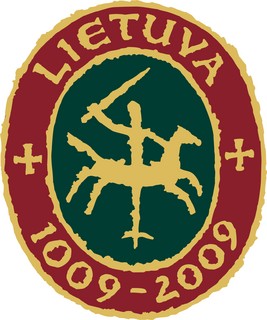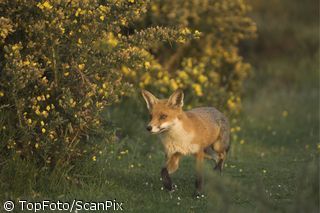The success of future services will rely on building customer confidence.
Published:
27 March 2001 y., Tuesday
Many leading companies with an interest in the field have formed an alliance called Radicchio. The aim is to produce a standard for cross-platform, end-to-end encryption (the translation of data into a code that requires a secret key or password) for security. Known as PKI (Public Key Infrastructure), it comprises a two-part data encryption/ decryption key. One part is available for distribution to companies supplying services, while the other is kept privately by the user, much like the PIN number for a credit card.
Mike Walker, chief scientist for Vodafone, chairman of the 3GPP (Third Generation Partnership Project – the standardisation forum for 3G mobile systems) Working Group SA3 (Security) and a member of the Radicchio board says that PKI is vital to ensure that mobile e-commerce does not suffer from the same degree of distrust as has fixed-access Internet trading.
Other solutions do exist for these technologies. WAP has a built-in security feature, but it only encrypts data between the handset and the gateway to the Internet. This means that any data sent beyond this point could be read by anyone with the means to intercept it. Some companies, in partnership with banks and traders, have set up Virtual Private Networks (VPNs), so that customers can carry out secure transactions and pass sensitive data without using the public part of the World Wide Web. However, the service is only available from those companies that have signed up with a VPN. This may be fine for banks and their customers, but in the long run it will not deliver the freedom to trade with whomever one wishes on the public Web.
Šaltinis:
cebitnews.com
Copying, publishing, announcing any information from the News.lt portal without written permission of News.lt editorial office is prohibited.
The most popular articles
 EU testing shows serious risk of shocks and fire in many lights. Stay safe – turn them off when you go to bed or leave the house.
more »
EU testing shows serious risk of shocks and fire in many lights. Stay safe – turn them off when you go to bed or leave the house.
more »
 The European Parliament has a close relationship with African, Caribbean and Pacific (ACP) states and during the 18th ACP/EU Joint Parliamentary Assembly in Angola, MEPs took time to visit the new city of Kilamba Kiaxi, south of Luanda, where 20,000 apartments are being built.
more »
The European Parliament has a close relationship with African, Caribbean and Pacific (ACP) states and during the 18th ACP/EU Joint Parliamentary Assembly in Angola, MEPs took time to visit the new city of Kilamba Kiaxi, south of Luanda, where 20,000 apartments are being built.
more »
 Everyone can fight climate change by not eating meat one day a week, urged Sir Paul McCartney at a European Parliament public hearing on "Global Warming and Food Policy: Less Meat = Less Heat" on Thursday.
more »
Everyone can fight climate change by not eating meat one day a week, urged Sir Paul McCartney at a European Parliament public hearing on "Global Warming and Food Policy: Less Meat = Less Heat" on Thursday.
more »
 Movies of Lithuanian cinema were demonstrated in the Supreme Headquarters Allied Powers Europe (SHAPE) near Mons (Belgium) from November 9 to 11.
more »
Movies of Lithuanian cinema were demonstrated in the Supreme Headquarters Allied Powers Europe (SHAPE) near Mons (Belgium) from November 9 to 11.
more »
 30% of Christmas lights present an obvious and direct risk of fire and electric shocks according to a new report published today by the European Commission.
more »
30% of Christmas lights present an obvious and direct risk of fire and electric shocks according to a new report published today by the European Commission.
more »
 Irish national TV Europe correspondent, Tony Connelly launched his new book “Don't mention the Wars: A Journey Through European Stereotypes” at European Union House, Dublin, on 25 November 2009.
more »
Irish national TV Europe correspondent, Tony Connelly launched his new book “Don't mention the Wars: A Journey Through European Stereotypes” at European Union House, Dublin, on 25 November 2009.
more »
 A wedding for a man and woman in Southern Peru clearly didn't count on the attendance of at least two guests-- family members of the groom's current wife.
more »
A wedding for a man and woman in Southern Peru clearly didn't count on the attendance of at least two guests-- family members of the groom's current wife.
more »
 Day two of the Employment, Social Policy, Health and Consumer Affairs Council was primarily dedicated to health and public health issues.
more »
Day two of the Employment, Social Policy, Health and Consumer Affairs Council was primarily dedicated to health and public health issues.
more »
 A cold and rainy day in Madrid, Spain - at just degrees celsius not the best conditions for a naked demonstration.
more »
A cold and rainy day in Madrid, Spain - at just degrees celsius not the best conditions for a naked demonstration.
more »
 Today, the European Commission adopted a financial package of €275 million to support programmes to eradicate, control and monitor animal diseases in 2010.
more »
Today, the European Commission adopted a financial package of €275 million to support programmes to eradicate, control and monitor animal diseases in 2010.
more »